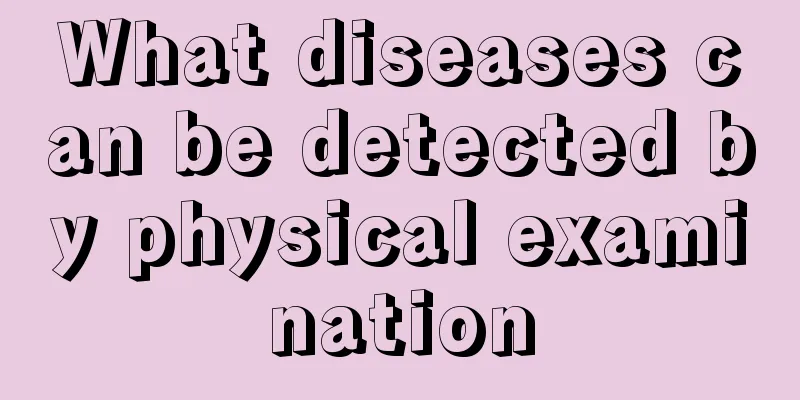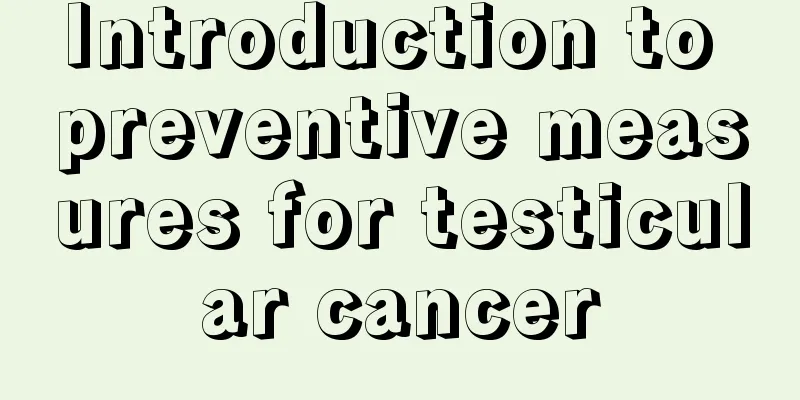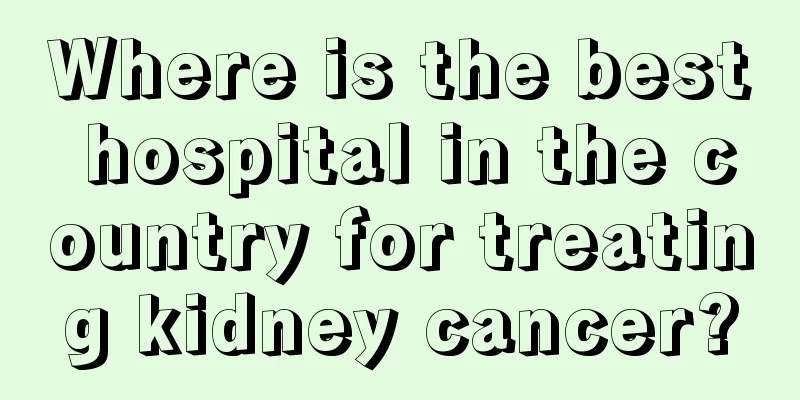How long does it take to recover after wisdom tooth extraction?

|
The human oral structure is very complex, and wisdom teeth are a relatively common problem. Extracting wisdom teeth is a relatively common treatment. It takes 2-3 days to recover after extracting wisdom teeth. During the recovery period, do not eat cold food or exert force on your teeth, which can easily cause bleeding gums. Pay attention to oral hygiene and eat more soft foods. Recovery time for wisdom tooth extraction Normally, the pain recovery period for wisdom tooth extraction is 3 days. Apply ice compress on the first day of the first three days, hot compress on the second day, and take some painkillers. By the third day, the pain will be basically gone. Pay attention to these after wisdom tooth extraction The stitches are usually removed within 10 days. There are many nerves around wisdom teeth, many of which are connected to the brain, so you must be careful when handling them. If it still hurts after a month, it is very abnormal. Ear pain also means that the nerves around the wound have not healed well. Precautions after tooth extraction 1. First of all, the most important thing is that after tooth extraction, you should stay calm and listen carefully to the doctor's instructions. This is very important. 2. It is best not to eat within 2 hours. Eat soft food, liquid or semi-liquid food on the same day. It is better to eat warm or cold food. Do not eat hard or overheated food. You can chew on the other side. 3. Do not rinse your mouth or spit too much on the day to prevent bleeding or infection. Do not repeatedly suck and spit out blood clots due to the bloody taste in your mouth, which will prevent the wound from healing. 4. Don’t brush your teeth on that day. Do not suck on the wound. No musical instrument. 5. It is normal to have blood in saliva within 1 week after tooth extraction. If the bleeding does not stop, go to the hospital for examination. 6. Try to exercise and talk less on the day of tooth extraction. Avoid smoking, drinking and spicy food. 7. If there are stitches in the mouth during tooth extraction, the stitches can usually be removed after 4 to 5 days. 8. Pay attention to the condition of the wound after tooth extraction. If there is a lot of bleeding, seek medical attention in time. The gauze or cotton ball on the wound after tooth extraction needs to be bitten for about half an hour before spitting it out. Do not bite it too tightly or for too long. A small amount of blood in your saliva is normal for 24 hours. 9. Generally, tooth extraction does not require oral conventional antibiotics. However, if you are extracting wisdom teeth or teeth with severe trauma, you must take oral antibiotics. If the symptoms worsen, antibiotics can be given intravenously. 10. It is recommended to use the special pure natural mouthwash supplied by our department - Shucha on the day of routine tooth extraction. Hold 5 ml of the original solution in the mouth for five minutes and then spit it out. There is no need to clean the mouth with clean water after spitting it out. You can repeat it many times a day and continue to use it to rinse your mouth from the second day onwards to reduce postoperative reactions. 11. Except for the third molar and supernumerary teeth, most adults need to wear dentures after tooth extraction. Dentures should be replaced about 2 months after extraction (except impacted teeth) to avoid adjacent teeth from falling over. 12. After tooth extraction, you can rest in a semi-recumbent position, but do not lie flat on your back. Do not take a hot bath immediately to avoid bleeding from the wound. What to eat after tooth extraction 1. You can drink water and eat semi-liquid food such as porridge, thin noodles, etc. 2 hours after tooth extraction. Do not eat too hot or too hard food, do not drink strong alcohol, do not smoke, and do not eat spicy food. 2. Decline social engagements and avoid excessive drinking. Adequate rest and sleep are necessary conditions. 3. You must use mouthwash after meals and before going to bed. Hold it gently for 30 seconds and then spit it out slowly to prevent bacterial infection. 4. Take medicines according to the doctor's prescription and do not reduce the dosage on your own, otherwise the consequences will be unimaginable. 5. Drink more fruit juice and supplement vitamin C and B complex to promote wound healing. What to do if you bleed after tooth extraction 1. Make horizontal mattress sutures on both sides of the gums and apply pressure for 5 to 10 minutes after suturing. 2. Try to use iodoform sponge to place it in the upper part of the alveolar socket, and then apply pressure with gauze roll. 3. Under local anesthesia, remove the blood clots and inflammatory granulation tissue in the alveolar socket, then use an iodoform gauze strip to fill the socket tightly from the bottom, bite the gauze roll to apply pressure, remove the gauze strip after one week, and replace it with a shorter one and place it loosely. After several changes, granulation tissue will gradually grow in the socket and heal. What to do if you have pain after tooth extraction 1. After tooth extraction, the doctor needs to clean the wound, insert hemostatic cotton, and suture it to prevent bleeding and accelerate wound healing. 2. Bite the gauze tightly on the wound for 40-60 minutes and talk as little as possible to prevent further bleeding to achieve the hemostasis function. 3. If there is saliva in your mouth, you need to swallow it. Do not rinse your mouth forcefully to prevent the wound from tearing. 4. After the bleeding stops, you can use ice compresses or ice water within 24 hours to prevent the wound from swelling. 5. You must use mouthwash after meals and before going to bed. Hold it gently for 30 seconds and then spit it out slowly to prevent bacterial infection. 6. Take medicines according to the doctor's prescription and do not reduce the dosage on your own, otherwise the consequences will be unimaginable. 7. The stitches will be removed after one week and the dentist will give you new advice. 8. Drink more fruit juice and supplement vitamin C and B complex to promote wound healing. 9. Remember to leave the phone number of the hospital or clinic and the name of the doctor, and contact the doctor immediately if there is any emergency. 10. Decline social engagements and avoid excessive drinking. Adequate rest and sleep are necessary. How long after tooth extraction can you brush your teeth? The wound has just healed after tooth extraction. At this time, the local fibroblasts have just extended and grown from the alveolar bone wall toward the blood clot, and gradually organized the blood clot to make it firm and strong. Regarding the question of how long you can brush your teeth after tooth extraction, generally speaking, you should not rinse your mouth, let alone brush your teeth, within 24 hours after tooth extraction. If you are in a hurry to rinse your mouth and brush your teeth, you may rinse or brush away the blood clot and cause further bleeding, or cause an empty tooth socket and lead to the painful "dry socket", which will prolong the healing time. How long after tooth extraction can you eat? Two hours after tooth extraction, if there is no abnormality such as bleeding, swelling or pain in the mouth, you can eat. It is best to eat some liquid food. It is not advisable to eat hard, too hot, too cold or other irritating food. Because it takes dozens of hours for the blood clot in the alveolar socket to generate new granulation tissue, it is best to eat some liquid food. This way, on the one hand, you can replenish the body's strength, and on the other hand, you can better protect the tooth extraction wound. |
<<: How is mesenteric lymphadenitis treated?
>>: What are the symptoms of nasal cysts?
Recommend
I lost weight after I stopped exercising
Some people will exercise every day and insist on...
What is the function of quicklime?
Quicklime is not unfamiliar to many people. Quick...
How much does a bile duct stent for pancreatic cancer cost
Pancreatic cancer is a relatively common cancer. ...
How to remove formaldehyde from a newly renovated house
People will be very happy after buying their new ...
What should I eat after liver cancer surgery? It is better to eat these three types of food
After liver cancer surgery, patients need to eat ...
Is mycoplasma contagious?
Mycoplasma is a common disease infection and is c...
Does nasopharyngeal carcinoma develop quickly?
The development period is generally about one mon...
What are the treatments for ovarian cancer by stage
For women, the biggest headache now is not life o...
How to clean blood stains on clothes?
In daily life, people are bound to bleed due to b...
What are the symptoms of digestive motility diseases
There are several types of digestive motility dis...
What is the cause of laryngeal cancer?
There are many diseases in the throat area, and l...
What are the symptoms of recurrence of nasopharyngeal carcinoma? What are the symptoms in the late stage?
Are there any symptoms of recurrence of nasophary...
What problems can be found out by urine routine test
Everyone should understand the importance of rout...
The correct way to eat black beans soaked in vinegar every day
The uses of vinegar in life are very broad, becau...
Cell preservation solution
We all know that cervical cancer is a fatal gynec...









